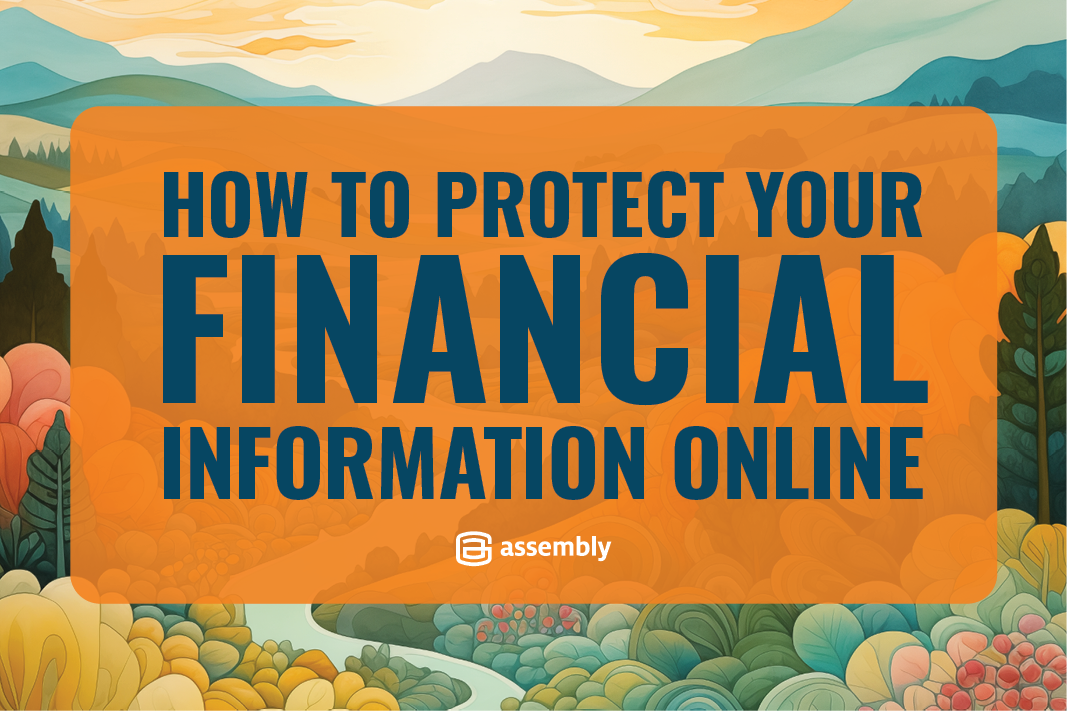How to Talk to Your Family About Your Estate Plan
The “Godfather of Soul,” James Brown, who passed away in 2006, had a noble vision for how he wanted his assets distributed. His will included $2...

You’ve worked hard to save and plan for a healthy financial future. Unfortunately, cybercriminals are also hard at work — devising ways to steal your login information or trick you into transferring money.
Keeping your brokerage account secure is of the utmost importance to our team, but we believe it’s important to keep clients up-to-date on the latest scams so they can avoid compromising any of their online accounts. By the end of this article, you’ll know why you should:
We’ll also share simple but effective ways to safeguard your hard-earned savings and investments from bad actors.
IN THIS ARTICLE:
Source: FTC (Federal Trade Commission)
The Wall Street Journal warns cybercriminals are also targeting personal retirement accounts. One victim lost more than $240,000, and getting the money back isn’t as simple as disputing a credit card charge.
Be Vigilant!
Public Wi-Fi networks and charging stations are a buffet for bad actors. Never use USB charging stations at hotels, airports, etc. Cybercriminals use charging ports to inject malware and monitoring software into laptops and phones. Always charge using an electrical outlet and keep your anti-virus software up to date.
Avoid making purchases or logging in to financial institution websites while connected to public Wi-FI. If you have to make a transaction over a public network, use a VPN.
For years, cybercriminals stole bank logins and other confidential information by infecting computers with malware — typically via an email attachment. But in 2023, malvertising (malicious advertising) became popular. Here’s how it works:
DON’T:
DO:
Here are some additional ways to create a strong password. The article also includes tips for remembering those extra-long passwords.
Email is the number one way scammers connect with victims, according to the FTC. Cybercriminals trick people by sending a fake message from a government agency or well-known company. For example, the “From” name may say “Amazon Customer Support,” but the email address is: customerservice@amazom.com — can you spot the error?
Businesses are also a target. A “vendor” (in reality, a scammer) will send an email to update their mailing address or bank information, ensuring payments bypass the real vendor and go to the cybercriminal instead. Another common scam involves an email or a text from the CEO asking an employee to transfer money or purchase gift cards. Understandably, most people don’t say “no” to the big boss.
Messages asking you to verify or update your account information and urgent requests for money are almost always a scam. If you are concerned about your account status, visit the company’s website and use their contact form or customer service phone number. Don’t click any links or use the contact info in a suspicious message.
Email is the most common way criminals cheat people out of their hard-earned money, but imposter scams have the largest negative financial impact. Cybercriminals stole $2.7 billion in 2023 by manipulating people over the phone.
Imposter scams can include someone pretending to be:
According to computer security company McAfee, “voice-cloning tools are capable of replicating how a person speaks with up to 95% accuracy.” Even more troubling? Only three seconds of audio is required to clone someone’s voice — and an app that costs five dollars.
Cybercriminals glean the audio they need to clone someone’s voice from videos posted to social media, YouTube and elsewhere. You may not post videos to social media or YouTube, but how many people in your family do? If you receive a phone call from a friend or family member claiming they’ve been in an accident or lost their wallet, it could be a scam.
Here’s how to outsmart the imposters:
Always type in the web address of the bank or investment site you want to visit or use the company’s app.
Financial institutions invest heavily in cybersecurity measures and millions of people manage billions of dollars in assets online. At Assembly Wealth, we take extra steps to protect you and your money from financial fraud:
If you ever have a question or receive a request that sends up a red flag, please call us at 415-541-7774 and speak to a trusted member of our team. Do not use the phone number provided in a suspicious email.
Below are some additional resources you can use to stay vigilant:
Related Reading:
8 Tips for Protecting Your Retirement Savings Online (US Dept. of Labor)
Common Internet Scams and Crimes (FBI)
Consumer Alerts (FTC)
Fill out the form to be notified about new articles.

The “Godfather of Soul,” James Brown, who passed away in 2006, had a noble vision for how he wanted his assets distributed. His will included $2...

If you have a parent age 65 or older and at least one dependent child, you’re a member of the sandwich generation. According to Pew Research, about...

It may look like a typo, but dollar-cost ravaging is a real thing — and a serious problem for some retirees. As you may have guessed, the name is a...